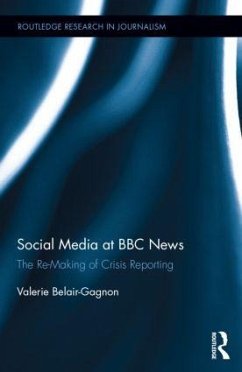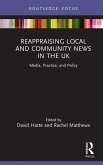Since the emergence of social media in the journalistic landscape, the BBC has sought to produce reporting more connected to its audience while retaining its authority as a public broadcaster in crisis reporting. Using empirical analysis of crisis news production at the BBC, this book shows that the emergence of social media at the BBC and the need to manage this kind of material led to a new media logic in which tech-savvy journalists take on a new centrality in the newsroom. In this changed context, the politico-economic and socio-cultural logic have led to a more connected newsroom involving this new breed of journalists and BBC audience. This examination of news production events shows that in the midst of transformations in journalistic practices and norms, including newsgathering, sourcing, distribution and impartiality, the BBC has reasserted its authority as a public broadcaster. Click here for a short video about the book.
Hinweis: Dieser Artikel kann nur an eine deutsche Lieferadresse ausgeliefert werden.
Hinweis: Dieser Artikel kann nur an eine deutsche Lieferadresse ausgeliefert werden.








